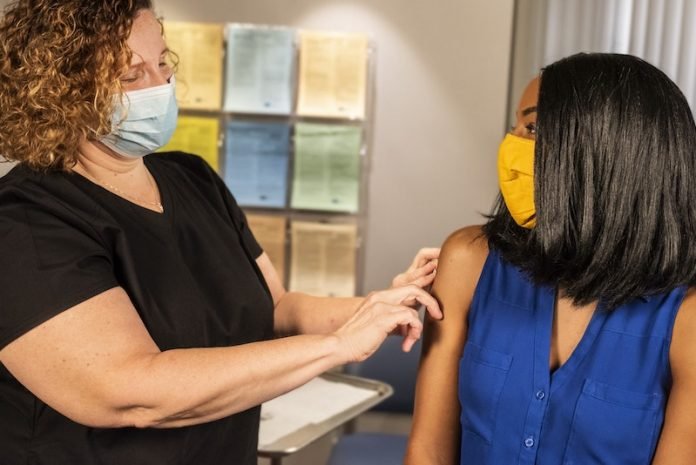
In a new study from the University of New Hampshire, researchers found getting vaccinated for COVID-19 measurably improved the psychological well-being
Vaccination was linked to declines in distress and perceived risks of infection, hospitalization, and death.
The study showed important psychological benefits of vaccination beyond reducing the risk of severe illness and death associated with COVID-19.
Psychologic distress and anxiety increased sharply across the population following the onset of the COVID-19 pandemic.
Several factors contributed, such as widespread job and income loss, food insecurity, social isolation, caregiving burdens, substance abuse, and racialized discrimination.
Depressive symptoms persisted and increased into 2021 for those experiencing an accumulation of stress exposures.
Not surprisingly, many individuals are also experiencing anticipatory fears that contribute to rising mental health problems.
In the study, the team used data from 8,090 adults who were interviewed regularly between March 2020 and June 2021.
They found declines in COVID-related risk perceptions and psychological distress following vaccination.
Specifically, adults who received at least one dose of the COVID-19 vaccine between December 2020 and June 2021 reported a 7% relative reduction in mental distress.
Reductions in distress were partially explained by declining risk perceptions following vaccination.
Becoming vaccinated was associated with a 7.77% decline in perceived risk of infection, a 6.91% decline in perceived risk of hospitalization, and a 4.68% decline in perceived risk of death.
These effects persisted and became stronger up to at least eight weeks following vaccination.
The team says with the rapid rise of the Omicron variant in late 2021 and early 2022, urgent measures are needed to increase vaccination rates and achieve vaccine equity, both locally and globally.
These efforts need to be coupled with effective communication about the benefits, both physical and mental, associated with vaccination.
If you care about Covid, please read studies about why some people cannot resist COVID-19 like others, and how to fight seasonal depression during the COVID-19 pandemic.
For more information about health, please see recent studies that two at-home COVID-19 treatments are available, and results showing this drug could help treat lung damage in COVID-19.
The study is published in the American Journal of Preventive Medicine and was conducted by Jonathan Koltai et al.
Copyright © 2022 Knowridge Science Report. All rights reserved.



